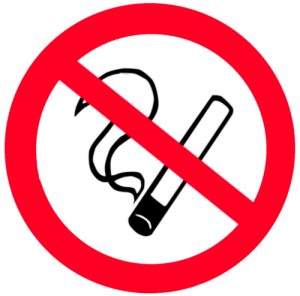The Great American Smokeout!
 November 17th is The Great American Smokeout, brought to by The American Cancer Society! It’s an entire day dedicated to help you Quit Smoking.
November 17th is The Great American Smokeout, brought to by The American Cancer Society! It’s an entire day dedicated to help you Quit Smoking.
“The American Cancer Society is marking the 36th Great American Smokeout on November 17 by encouraging smokers to use the date to make a plan to quit, or to plan in advance and quit smoking that day. By doing so, smokers will be taking an important step towards a healthier life – one that can lead to reducing cancer risk.
Tobacco use remains the single largest preventable cause of disease and premature death in the US, yet more than 45 million Americans still smoke cigarettes. However, more than half of these smokers have attempted to quit for at least one day in the past year.
Quitting is hard, but you can increase your chances of success with help. The American Cancer Society can tell you about the steps you can take to quit smoking and provide the resources and support that can increase your chances of quitting successfully. To learn about the available tools, call the American Cancer Society at 1-800-227-2345. You can also find free tips and tools below.” – American Cancer Society
Kicking a bad habit is hard, but you have all of the reasons in the world to quick the habit of smoking. Even a few cigarettes a day can harm your health. If you currently smoke, quitting the habit is one of the best things you can do for your health.
I am going to discuss the sad statistics that comes along with smoking. Before you get overwhelmed, I do have some good news. Hope. I will give smokers plenty of reasons to be optimistic and help to quit the habit now.
Smoking Statistics
Here’s some startling statistics that make quitting worth your effort:
• Smoking has been linked to chronic illnesses, such as heart disease, stroke, lung cancer, emphysema and bronchitis, which affects over 8.5 million Americans.
• The average non-smoker outlives the average smoker by 14 years.
• Smoking causes bladder cancer, cataracts, aging skin, osteoporosis, heartburn, erectile dysfunction, dental and sinusitis disorders.
• 1 out of every 5 deaths in the United States is because of tobacco use, which equates to 435,000 lives lost every year.
Encouraging Statistics For Those Who Quit Smoking
The good news is, the damage caused by smoking isn’t completely irreversible. Here’s some positive changes that happens after you quit smoking:
• Within 24 hours of quitting, your oxygen and carbon monoxide levels return to normal, chance of a heart attack may be lower, and your ability to taste and smell enhances.
• Within 2 months of quitting, lung function increases by 20%.
• Within 9 months of quitting, sinus congestion, coughing, and shortness of breath decreases. Cilia will start to re-grow in the lungs, which increases the lung’s ability to handle mucus, clean lungs and fight infection.
• Within 1 year of quitting, the excess risk of heart disease caused by smoking is cut in half.
• Within 10 years of quitting, the risk of developing lung cancer drops by up to 70% and continues to go down with each year that you are a nonsmoker.
• Within 15 years of quitting, the risk of mouth, throat and esophogeal cancer caused by smoking is cut in half, the risk of a stroke and heart disease is the same as that of a nonsmoker.
Get The Help You Need
Today is the first day of the rest of your life. You have every reason to quit smoking today, or help someone you love to quit smoking. It doesn’t matter how many packs a day you smoke, or for how long you have been smoking: If there’s a will, there’s a way. There’s help, and there’s hope for a brighter, much healthier you.
Here’s some great resources to help you quit smoking:
If you have any success stories of quitting the habit of smoking, please share your comments with us!
Feel free to follow us, however you like: Google+, Facebook, Twitter, Pinterest
